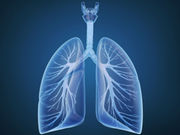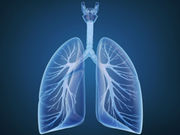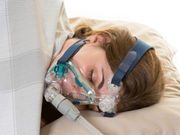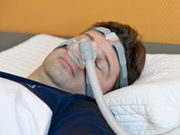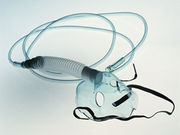Tag: Sleep Problems: Apnea
OSA Is Risk Factor for Recurrent Pulmonary Embolism
For patients who stop oral anticoagulants for a first episode of PE, OSA is risk factor for recurrence
Intermittent Hypoxia Promotes Lung Tumor Cell Aggressiveness
IH-induced exosomes from mice significantly promote TC1 malignant properties
Basal Metabolic Rate Down After CPAP Initiation in OSA
Higher leptin levels, lower ghrelin levels, higher eating behavior scores for weight gainers
CPAP Improves Asthma Control, QoL for Adults With Asthma, OSA
Decrease in percentage of patients with uncontrolled asthma, asthma attacks at six months
CHEST: Odds of Certain Post-Op Issues Up With Sleep Apnea
Tied to higher risk of postoperative atrial fibrillation, venous thromboembolism
Sleep Apnea Diagnoses Up Among Outpatients From 1993 to 2010
Majority of diagnoses reported by primary care providers, pulmonologists, and otolaryngologists
Losartan Reduces Aldosterone in Patients With HTN, Without OSA
No significant reductions in response to losartan for those with hypertension and obstructive sleep apnea
Compromised Driving Skills Seen in Patients With Sleep Apnea
Lane position deviation significantly worse in patients with obstructive sleep apnea
Risk of Cardiovascular Events Not Reduced With CPAP Use
CPAP helps patients feel better, but does not appear to cut odds for cardiovascular events
Resistant Hypertension Linked to Increased Risk of Sleep Apnea
Sleep apnea with resistant HTN linked to increased risk of ischemic heart event, congestive heart failure


